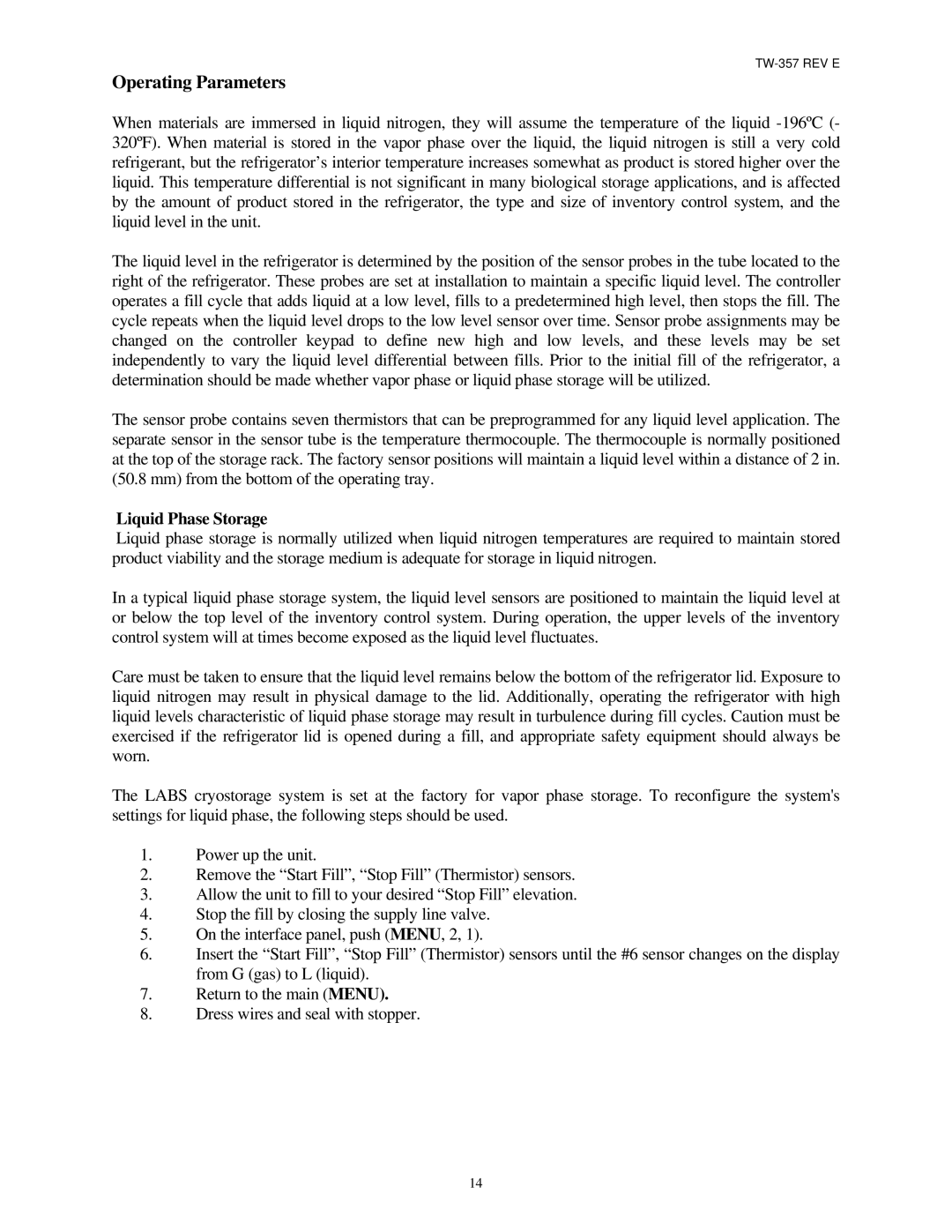TW-357 REV E
Operating Parameters
When materials are immersed in liquid nitrogen, they will assume the temperature of the liquid
The liquid level in the refrigerator is determined by the position of the sensor probes in the tube located to the right of the refrigerator. These probes are set at installation to maintain a specific liquid level. The controller operates a fill cycle that adds liquid at a low level, fills to a predetermined high level, then stops the fill. The cycle repeats when the liquid level drops to the low level sensor over time. Sensor probe assignments may be changed on the controller keypad to define new high and low levels, and these levels may be set independently to vary the liquid level differential between fills. Prior to the initial fill of the refrigerator, a determination should be made whether vapor phase or liquid phase storage will be utilized.
The sensor probe contains seven thermistors that can be preprogrammed for any liquid level application. The separate sensor in the sensor tube is the temperature thermocouple. The thermocouple is normally positioned at the top of the storage rack. The factory sensor positions will maintain a liquid level within a distance of 2 in. (50.8 mm) from the bottom of the operating tray.
Liquid Phase Storage
Liquid phase storage is normally utilized when liquid nitrogen temperatures are required to maintain stored product viability and the storage medium is adequate for storage in liquid nitrogen.
In a typical liquid phase storage system, the liquid level sensors are positioned to maintain the liquid level at or below the top level of the inventory control system. During operation, the upper levels of the inventory control system will at times become exposed as the liquid level fluctuates.
Care must be taken to ensure that the liquid level remains below the bottom of the refrigerator lid. Exposure to liquid nitrogen may result in physical damage to the lid. Additionally, operating the refrigerator with high liquid levels characteristic of liquid phase storage may result in turbulence during fill cycles. Caution must be exercised if the refrigerator lid is opened during a fill, and appropriate safety equipment should always be worn.
The LABS cryostorage system is set at the factory for vapor phase storage. To reconfigure the system's settings for liquid phase, the following steps should be used.
1.Power up the unit.
2.Remove the “Start Fill”, “Stop Fill” (Thermistor) sensors.
3.Allow the unit to fill to your desired “Stop Fill” elevation.
4.Stop the fill by closing the supply line valve.
5.On the interface panel, push (MENU, 2, 1).
6.Insert the “Start Fill”, “Stop Fill” (Thermistor) sensors until the #6 sensor changes on the display from G (gas) to L (liquid).
7.Return to the main (MENU).
8.Dress wires and seal with stopper.
14
